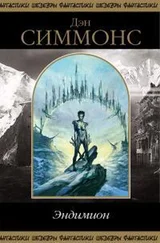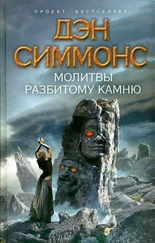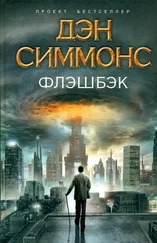Дэн Симмонс - The Rise of Endymion
Здесь есть возможность читать онлайн «Дэн Симмонс - The Rise of Endymion» весь текст электронной книги совершенно бесплатно (целиком полную версию без сокращений). В некоторых случаях можно слушать аудио, скачать через торрент в формате fb2 и присутствует краткое содержание. Жанр: Эпическая фантастика, Космическая фантастика, на английском языке. Описание произведения, (предисловие) а так же отзывы посетителей доступны на портале библиотеки ЛибКат.
- Название:The Rise of Endymion
- Автор:
- Жанр:
- Год:неизвестен
- ISBN:нет данных
- Рейтинг книги:5 / 5. Голосов: 1
-
Избранное:Добавить в избранное
- Отзывы:
-
Ваша оценка:
- 100
- 1
- 2
- 3
- 4
- 5
The Rise of Endymion: краткое содержание, описание и аннотация
Предлагаем к чтению аннотацию, описание, краткое содержание или предисловие (зависит от того, что написал сам автор книги «The Rise of Endymion»). Если вы не нашли необходимую информацию о книге — напишите в комментариях, мы постараемся отыскать её.
The Rise of Endymion — читать онлайн бесплатно полную книгу (весь текст) целиком
Ниже представлен текст книги, разбитый по страницам. Система сохранения места последней прочитанной страницы, позволяет с удобством читать онлайн бесплатно книгу «The Rise of Endymion», без необходимости каждый раз заново искать на чём Вы остановились. Поставьте закладку, и сможете в любой момент перейти на страницу, на которой закончили чтение.
Интервал:
Закладка:
The Rise of Endymion
Dan Simmons
We are not stuff that abides, but patterns that perpetuate themselves.
—Norbert Wiener, Cybernetics, or Control and Communication in the Animal and the MachineThe universal nature out of the universal substance, as if it were wax, now moulds the figure of a horse, and when it has broken this up, it uses the material for a tree, next for a man, next for something else; and each of these things subsists for a very short time. But it is no hardship for the vessel to be broken up, just as there was none in its being fastened together.
—Marcus Aurelius, MeditationsBut here is the finger of God, a flash of the will that can,
Existent behind all laws, that made them and, lo, they are!
And I know not if, save in this, such gift be allowed to man,
That out of three sounds he frame, not a fourth sound, but a star.
If what I have said should not be plain enough, as I fear it may not be, I will but [sic] you in the place where I began in this series of thoughts—I mean, I began by seeing how man was formed by circumstances—and what are circumstances?—but touchstones of his heart—his and what are touch stones?—but proovings [sic] of his heart [sic]?—and what are the proovings [sic] of his heart but fortifiers or alterers of his nature? and what is his altered nature but his soul?—and what was his soul before it came into the world and had These provings and alterations and perfectionings?—An intelligences [sic]—without Identity—and how is this Identity to be made? Through the medium of the Heart? And how is the heart to become this Medium but in a world of Circumstances?—There now I think what with Poetry and Theology you may thank your Stars that my pen is not very longwinded—
—John Keats, In a letter to his brotherPART ONE
1
“The Pope is dead! Long live the Pope!”
The cry reverberated in and around the Vatican courtyard of San Damaso where the body of Pope Julius XIV had just been discovered in his papal apartments. The Holy Father had died in his sleep. Within minutes the word spread through the mismatched cluster of buildings still referred to as the Vatican Palace, and then moved out through the Vatican State with the speed of a circuit fire in a pure-oxygen environment. The rumor of the Pope’s death burned through the Vatican’s office complex, leaped through the crowded St. Anne’s Gate to the Apostolic Palace and the adjacent Government Palace, found waiting ears among the faithful in the sacristy of St. Peter’s Basilica to the point that the archbishop saying Mass actually turned to look over his shoulder at the unprecedented hiss and whispering of the congregation, and then moved out of the Basilica with the departing worshipers into the larger crowds of St. Peter’s Square where eighty to a hundred thousand tourists and visiting Pax functionaries received the rumor like a critical mass of plutonium being slammed inward to full fission.
Once out through the main vehicle gate of the Arch of Bells, the news accelerated to the speed of electrons, then leaped to the speed of light, and finally hurtled out and away from the planet Pacem at Hawking-drive velocities thousands of times faster than light. Closer, just beyond the ancient walls of the Vatican, phones and comlogs chimed throughout the hulking, sweating Castel Sant’Angelo where the offices of the Holy Office of the Inquisition were buried deep in the mountain of stone originally built to be Hadrian’s mausoleum. All that morning there was the rattle of beads and rustle of starched cassocks as Vatican functionaries rushed back to their offices to monitor their encrypted net lines and to wait for memos from above.
Personal communicators rang, chimed, and vibrated in the uniforms and implants of thousands of Pax administrators, military commanders, politicians, and Mercantilus officials. Within thirty minutes of the discovery of the Pope’s lifeless body, news organizations around the world of Pacem were cued to the story: they readied their robotic holocams, brought their full panoply of in-system relay sats on-line, sent their best human reporters to the Vatican press office, and waited. In an interstellar society where the Church ruled all but absolutely, news awaited not only independent confirmation but official permission to exist.
Two hours and ten minutes after the discovery of Pope Julius XIV’s body, the Church confirmed his death via an announcement through the office of the Vatican Secretary of State, Cardinal Lourdusamy. Within seconds, the recorded announcement was tightcast to every radio and holovision on the teeming world of Pacem.
With its population of one and a half billion souls, all born-again Christians carrying the cruciform, most employed by the Vatican or the huge civilian, military, or mercantile bureaucracy of the Pax state, the planet Pacem paused to listen with some interest. Even before the formal announcement, a dozen of the new archangel-class starships had left their orbital bases and translated across the small human sphere of the galaxy arm, their near-instantaneous drives instantly killing their crews but carrying their message of the Pope’s death secure in computers and coded transponders for the sixty-some most important archdiocese worlds and star systems. These archangel courier ships would carry a few of the voting cardinals back to Pacem in time for the election, but most of the electors would choose to remain on their homeworlds—foregoing death even with its sure promise of resurrection—sending instead their encrypted, interactive holo wafers with their eligo for the next Supreme Pontiff.
Another eighty-five Hawking-class Pax ships, mostly high-acceleration torchships, made ready to spin up to relativistic velocities and then into jump configurations, their voyage time to be measured in days to months, their relative time-debt ranging from weeks to years. These ships would wait in Pacem space the fifteen to twenty standard days until the election of the new Pope and then bring the word to the 130-some less critical Pax systems where archbishops tended to billions more of the faithful. Those archdiocese worlds, in turn, would be charged with sending the word of the Pope’s death, resurrection, and reelection on to lesser systems, distant worlds, and to the myriad colonies in the Outback.
A final fleet of more than two hundred unmanned courier drones was taken out of storage at the huge Pax asteroid base in Pacem System, their message chips waiting only for the official announcement of Pope Julius’s rebirth and reelection before being accelerated into Hawking space to carry the news to elements of the Pax Fleet engaged in patrol or combat with the Ousters along the so-called Great Wall defensive sphere far beyond the boundaries of Pax space.
Pope Julius had died eight times before. The Pontiff’s heart was weak, and he would allow no repair of it—either by surgery or nanoplasty.
It was his contention that a pope should live his natural life span and—upon his death—that a new pope should be elected. The fact that this same Pope had been reelected eight times did not dissuade him from his opinion. Even now, as Pope Julius’s body was being readied for a formal evening of lying in state before being carried to the private resurrection chapel behind St. Peter’s, cardinals and their surrogates were making preparations for the election.
The Sistine Chapel was closed to tourists and made ready for the voting that would occur in less than three weeks. Ancient, canopied stalls were brought in for the eighty-three cardinals who would be present in the flesh while holographic projectors and interactive datumplane connections were set in place for the cardinals who would vote by proxy. The table for the Scrutineers was set in front of the Chapel’s high altar.
Читать дальшеИнтервал:
Закладка:
Похожие книги на «The Rise of Endymion»
Представляем Вашему вниманию похожие книги на «The Rise of Endymion» списком для выбора. Мы отобрали схожую по названию и смыслу литературу в надежде предоставить читателям больше вариантов отыскать новые, интересные, ещё непрочитанные произведения.
Обсуждение, отзывы о книге «The Rise of Endymion» и просто собственные мнения читателей. Оставьте ваши комментарии, напишите, что Вы думаете о произведении, его смысле или главных героях. Укажите что конкретно понравилось, а что нет, и почему Вы так считаете.








